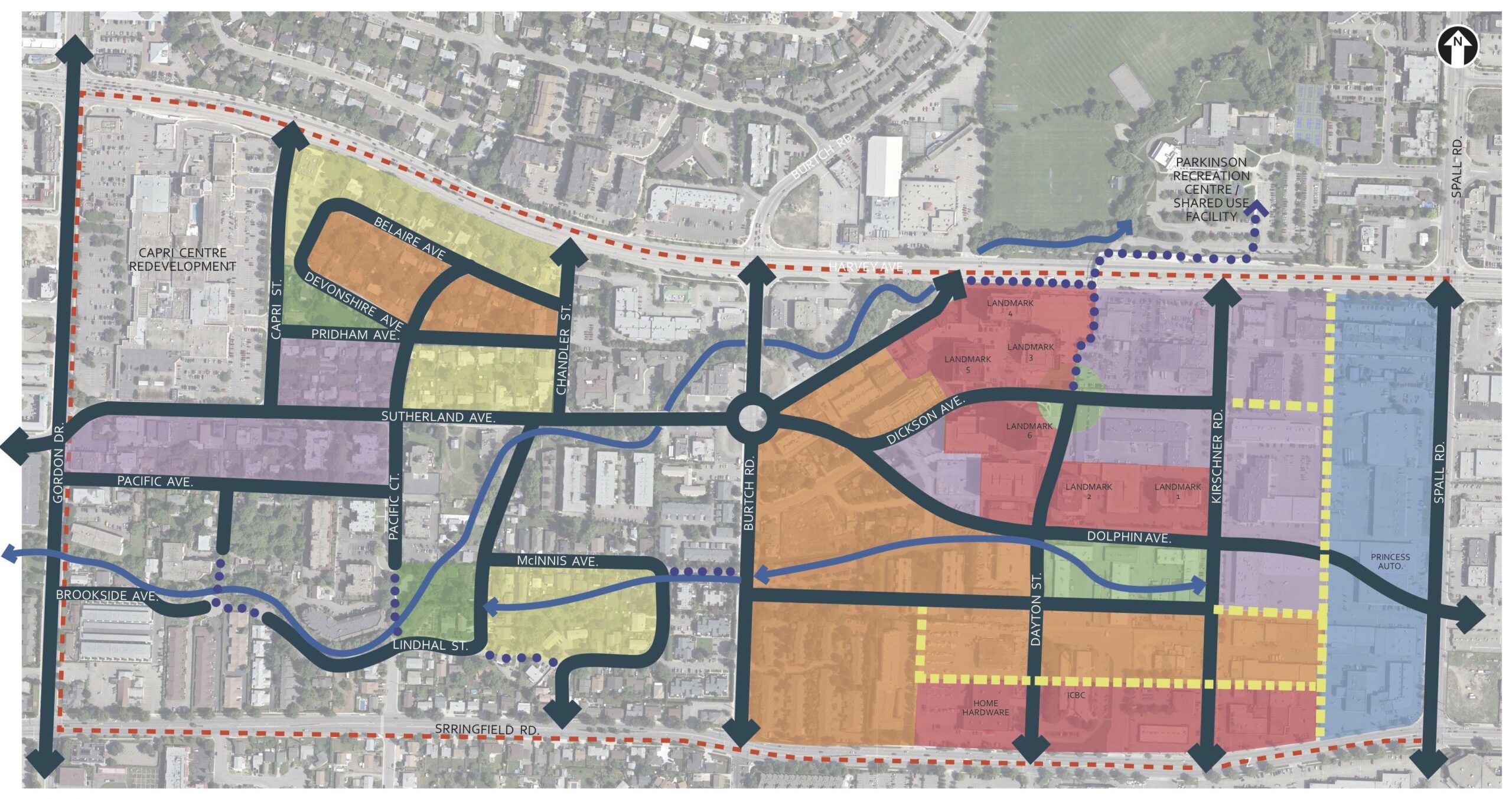The City of Kelowna is holding public consultations in an effort to re-imagine what the Capri-Landmark area will look like in the next few decades. This week I was invited to speak at one of the workshops about my perspective on active transportation. Essentially, I gave the same talk that I did at OnPoint last year when I argued that car ownership is merely cultural and that it can and should change (and of course I plugged OGO carshare, as always). But I did give it a little twist, focusing on the relationship between culture and infrastructure, and also tried to inject some urgency into the issue.
As a city we need to support more sustainable culture and infrastructure plays a big role in this. But we should not merely think of sustainable infrastructure as a way to engender sustainable culture in some far off future version of our citizenry. We need to do it now, and the reason is due to the economic prosperity of this city, and the pricing-out of people in larger centres like Vancouver: we are attracting people that already live a more sustainable lifestyle. By not already having denser housing, walkable neighbourhoods and comprehensive active transportation, we are sabotaging ourselves. It is like transplanting a beautiful flower — not to a rich new flowerbed — but to crack in the concrete. We need to ensure that we have the right infrastructure in place to let a sustainable culture flourish, since it is in the interest of everyone, and to serve as an example to our citizenry.
By living a no-car life, by speaking and writing about minimalism, I try to serve as a tangible example of sustainability. I am not the only one (of course) and always encourage others to champion their sustainability choices. People need examples to wake them up to possibilities.
This was the message I presented to a roomful of city engineers, architects and high-powered developers. I was really happy to be given the opportunity to speak to them as an average citizen who desires better options for a better city. I am not sure where else they would get to hear such an appeal. So I took the opportunity to send another message, and make a related request: design this new neighbourhood, and all new neighbourhoods, with our most vulnerable community members in mind. I challenged the transportation engineers to try riding our city buses with a baby stroller in the winter. Being “within 400 meters” of a destination is not such an admirable metric if you are pushing a baby stroller through snow on a street with no sidewalk. I pointed out how many of the new and convenient paths are simply not viable for wheelchair users. Also, having a maximum of 2 wheeled devices (wheelchair or stroller) on a bus at one time is way too low, especially for neighbourhoods with lots of young families, which is something they are advocating. I have witnessed it many times: there are too many pass-bys leaving disabled people and young parents in the dust. Furthermore, so many of our bus stops in this city are just a pole in the middle of the road! It is pretty crazy on many different levels.
So as the design for this are of the city evolves this year, I hope to see not only sustainable design, but also more inclusive design elements making things more accessible and citizen-friendly, not just a desireable location for the “rich and able.” Then it will certainly be an attractive destination for newcomers (as well as old-comers!).
If you are interested you can learn more about the City’s planning process and participate yourself online here: Capri Landmark urban centre plan


